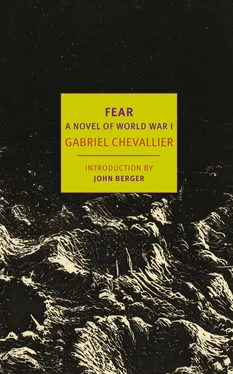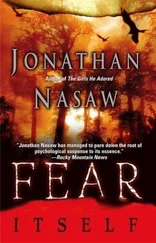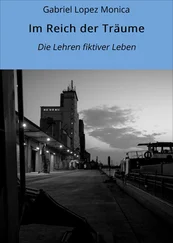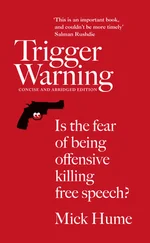When I was young we were taught — when we were at the front — that war was edifying, purifying and redemptive. We have all seen the repercussions of such twaddle: profiteers, arms dealers, the black market, denunciations, betrayals, firing squads, torture; not to mention famine, tuberculosis, typhus, terror, sadism. And heroism, I agree. But the small, exceptional amount of heroism does not make up for the immensity of evil. Besides, few people are cut out for true heroism. Let those of us who came back have the honesty to admit it.[2]
The great novelty of this book, whose title was intended as a challenge, is that its narrator declared: I am afraid. In all the ‘war books’ I had read, fear was indeed sometimes mentioned, but it was other people’s fear. The authors themselves were always phlegmatic characters who were so busy jotting down their impressions that they calmly greeted incoming shells with a happy smile.
The author of the present book believed that it would be dishonest to speak of his comrades’ fear without mentioning his. That is why he decided to admit, indeed to proclaim, his own fear. To have written about the war without writing about fear, without emphasising it, would have been a farce. You do not spend time in places where at any moment you may be blown to pieces without experiencing a degree of apprehension.
Responses to the book varied widely and its author was sometimes taken to task. But two points are worth noting. Some of those who had attacked him would later come to grief, their valour having chosen the wrong camp. And since then some proud pens have avowed that shameful little word, fear.
As for those who fought as infantrymen, they wrote: ‘True! This is what we experienced but could not express.’ Their opinion is worth a great deal. […]
I should add two other points. I have not looked at these pages for fifteen years and have just reread them. It is always a surprise for an author to confront a text to which he once put his name. A surprise and a test. For men like to think they learn something as they grow older, That, at least, is how they console themselves.
The tone of Fear is extremely scornful and arrogant in places. It is the arrogance of youth and nothing in it could be changed without eliminating youth itself. The young Dartemont thinks what cannot be thought officially. He is still naïve enough to believe that everything is susceptible to reason. He fiercely asserts weighty and unpalatable truths. It is a matter of choosing whether to speak these truths or keep quiet about them. But he is too angry to be cautious. And acquiescence is often a mark of decrepitude.
A second point. Today I would not write this book in exactly the same way. But should I alter it, and to what extent? I am aware that former readers would take me to task if I changed the original text, that they would see it as a concession or capitulation. So, apart from some rare replacements of words or epithets, the text remains that of the first edition. I have even resisted the temptation to add more artistry, reminding myself that literary embellishments to a finished book only weaken it and there is no going back on the risk I took at the start.
One last thing. How will this book be ‘used’, for what propaganda? My answer is simply that it stood apart from all propaganda, and was not written to serve any.
G.C.
‘I am not a sheep, which means I am nothing.’
Stendhal
‘The danger in these strong communities, founded on similar, steadfast individual members, is an increasing, inherited stupidity, which follows all stability like its shadow.’
Nietzsche, Human, All Too Human, I, 224 (trans. Helen Zimmern)
THE FIRE WAS ALREADY SMOULDERING somewhere down in the depths of Europe, but carefree France donned its summer costumes, straw hats and flannel trousers, and packed its bags for the holidays. There wasn’t a cloud in the sky — such an optimistic, bright blue sky. It was terribly hot and drought was the only possible worry. It would be so lovely out in the countryside, or down by the sea. The scent of iced absinthe hung over the café terraces and gypsy orchestras played popular tunes from the The Merry Widow , which was then all the rage. The newspapers were full of details from a big murder trial that everyone was talking about; would the woman who some were calling the ‘blood clot’ be condemned or acquitted, would the thundering Labori, her lawyer, and the crimson-faced, raging little Borgia in a tail-coat, who had once led us (saved us, some said) carry the day?[3] We could see no further than that. Trains were packed and the booking offices did a roaring trade in round-trip tickets: the well-to-do were looking forward to a two-month holiday.
Then, all of a sudden, bolts of lightning pierce the perfect sky, one after another: ultimatum… ultimatum… ultimatum… But France, gazing at the clouds gathering in the east, says: ‘That’s where the storm will be, over there.’
A clap of thunder in the clear sky above the Île-de-France. Lightning strikes the Ministry of Foreign Affairs.
Priority! The telegraph is working flat out, for reasons of state. Post offices send out telegrams in cipher, marked ‘Urgent’.
The proclamation is posted up on every town hall in the country.
The shouting starts: ‘It’s official!’
Crowds of people swarm on to the streets, pushing and shoving, running in all directions.
Cafés empty. Shops empty. Cinemas, museums, banks, churches, bachelor flats and police stations empty.
The whole of France now stands gazing at the poster and reads: ‘Liberty, Equality, Fraternity — General Mobilisation.’
The whole of France stands on tiptoe to see the poster, all squeezed together in a fraternal huddle, dripping with sweat beneath a burning sun, and repeats the word ‘mobilisation’ without understanding it.
A voice goes off in the crowd like a firecracker: IT’S WAR!
And then France goes into a spin, rushing along the streets and boulevards that are too narrow for such crowds, through the villages, and out across the countryside: war, war, war…
Hey! Over there! War!
The country policemen bang their little drums and all the churches ring all the bells in their ancient Romanesque towers and tall, fine Gothic steeples. All together now! War!
The sentries in their tricolour sentry-boxes present arms. The mayors put on their sashes. The prefects put on their old uniforms. The generals assemble their staff. The ministers, in a tizzy, consult each other. War! Whatever next?
No one can keep still. Not the bank clerks, not the drapers’ assistants or the factory workers or the dressmakers or the typists or even the concierges. We’re closing! We’re closing! The ticket offices are closed, the strong-rooms are closed, the factories and the offices are closed. The steel shutters are down. We are all off to see what’s happening!
Military men take on a great importance and smile at the public acclaim. Career officers tell themselves: ‘Our hour has come. No more grovelling around in the lower ranks for us.’
In the teeming streets, men and women, arm in arm, launch themselves into a great dizzy, senseless farandole, because it’s war, a farandole which lasts through part of the night that follows this extraordinary day on which the posters went up on the town hall walls.
It starts just like a festival.
Only the cafés stay open.
And you can still smell the scent of iced absinthe, the scent of peacetime.
Women are crying. Why? A foreboding? Or just nerves?
War!
Everyone is getting ready. Everyone is going.
Читать дальше












